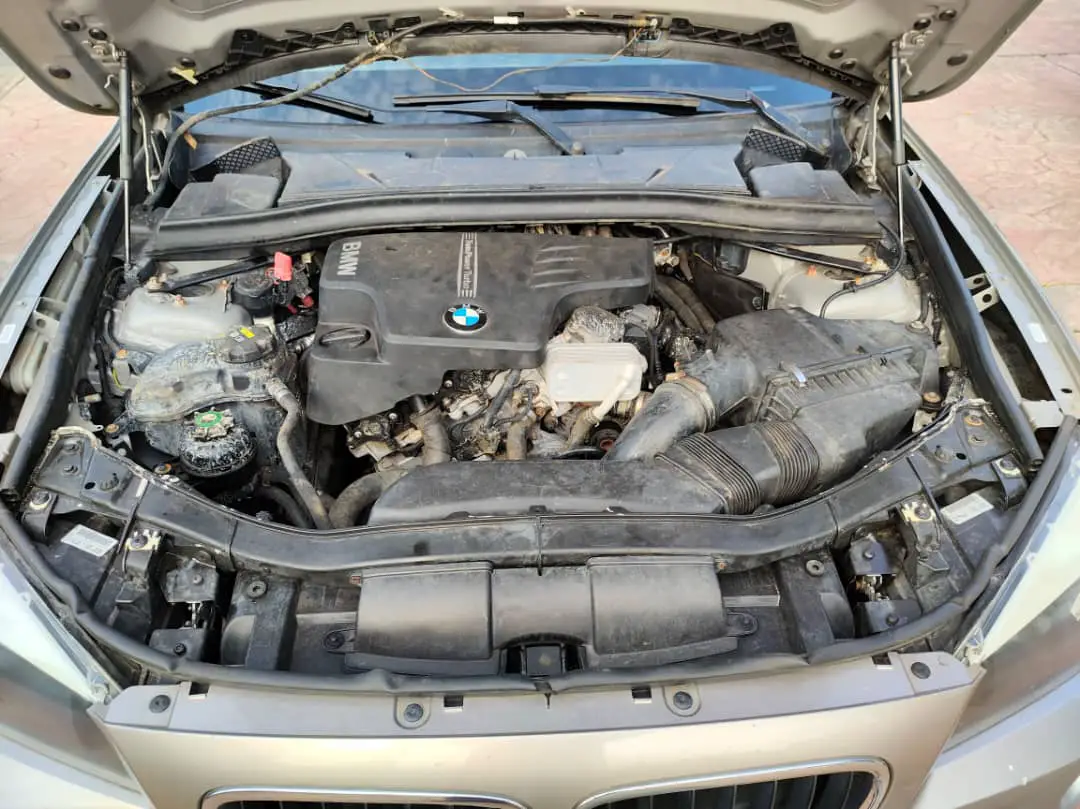You start your car, ready to drive, but something doesn’t feel right. The gears are tough to shift, there’s an odd noise, or the car just doesn’t run as smoothly as it used to. If you’ve noticed these signs, low gear oil might be the problem.
Gear oil is like the lubricant for your car’s transmission system. It keeps the gears moving smoothly and prevents metal parts from grinding against each other.
In this article, we’ll break everything down so you can understand what happens when your gear oil is low, whether you should keep driving, and how to fix it. Don’t worry, you don’t need to be a mechanic to follow along. We’ll use simple explanations and give you practical tips to protect your car and avoid expensive repairs.
What Is Gear Oil and Why Does It Matters?
Gear oil is a lubricant specifically designed for the moving parts in your car’s transmission system. It reduces friction, prevents wear and tear, and ensures smooth gear shifts. Unlike engine oil, which focuses on the engine, gear oil works to maintain the health of the gears, bearings, and synchronizers inside the transmission.
Without sufficient gear oil, the metal components inside the gearbox grind against each other, causing damage. It’s like trying to ride a bike with no grease on the chain—eventually, something will break.
What are the Signs of a Low Gear Oil?
Knowing the symptoms of low gear oil can save you from costly repairs. Here are some common signs:
- Difficulty Shifting Gears: If switching gears feels rough or requires extra effort, your gear oil might be running low.
- Grinding or Whining Noises: Strange noises coming from the transmission area are often a red flag. This happens when the gears lack sufficient lubrication.
- Burning Smell: Low gear oil can cause overheating, leading to a noticeable burning odor.
- Leaking Fluid: Spotting oil puddles under your car could signal a gear oil leak.
Can I Drive My Car if the Gear Oil Is Low?
The short answer is no—you shouldn’t drive with low gear oil. While your car might still move, the risks far outweigh the convenience. Driving with insufficient gear oil leads to increased friction, overheating, and accelerated wear on the transmission system. Over time, this can result in complete transmission failure, which is both expensive and time-consuming to fix.
Potential Risks of Driving with Low Gear Oil
Driving with low gear oil isn’t just a minor inconvenience; it can cause serious damage to your car. Here’s what can happen:
- Transmission Overheating: Without enough oil, the gears generate excessive heat, leading to overheating. This can warp the internal components.
- Increased Wear and Tear: Metal parts grind against each other, wearing them down faster than normal.
- Gear Slippage: Insufficient lubrication can cause the transmission to slip, making it hard to control your vehicle.
- Complete Transmission Failure: Prolonged driving with low gear oil can destroy the transmission system, requiring a costly replacement.
How to Check Gear Oil Levels
Checking your gear oil is a simple process that can prevent major issues. Follow these steps:
- Locate the Dipstick or Fill Plug: In manual transmissions, you’ll usually find a fill plug. For automatics, there’s often a dipstick labeled for transmission fluid.
- Inspect the Fluid Level: For dipsticks, pull it out, wipe it clean, reinsert it, and check the level. For fill plugs, remove the plug and see if the fluid is at the correct level.
- Check the Fluid Condition: Healthy gear oil is usually clear or amber. If it’s dark or has a burnt smell, it’s time for a change.
How Often Should Gear Oil Be Replaced?
Gear oil doesn’t need to be changed as frequently as engine oil, but it still requires attention. Most manufacturers recommend replacing gear oil every 30,000 to 60,000 miles. Check your owner’s manual for the specific interval for your vehicle.
If you frequently tow heavy loads or drive in extreme conditions, you might need to change the oil more often.
Steps to Top Up Gear Oil
If your gear oil is low, topping it up can be a temporary fix until you can address the root cause. Here’s how to do it:
- Gather Supplies: You’ll need the correct gear oil for your car, a funnel, and basic tools.
- Access the Gearbox: Locate the fill plug or dipstick. Make sure the car is on a level surface.
- Add the Oil: Use a funnel to pour the oil slowly, checking the level as you go.
- Seal It Up: Replace the plug or dipstick securely.
While topping up can help in the short term, it’s essential to fix any leaks or underlying problems.
Common Causes of Low Gear Oil
Understanding why your gear oil is low can help you prevent future issues. Here are some common causes:
- Leaks: Cracked seals or damaged gaskets are the usual culprits.
- Neglect: Skipping routine maintenance can lead to low oil levels over time.
- High Mileage: Older cars are more prone to gear oil depletion due to worn components.
What’s The Cost of Neglecting Gear Oil
Ignoring low gear oil can lead to significant expenses. Transmission repairs or replacements can cost anywhere from $1,000 to $4,000, depending on your vehicle. Regularly checking and maintaining your gear oil can save you thousands in the long run.
Expert Tips for Maintaining Gear Oil
- Inspect Regularly: Make checking your gear oil part of your routine maintenance.
- Use the Right Oil: Always use the type of gear oil recommended by your car’s manufacturer.
- Fix Leaks Promptly: Address any leaks as soon as you notice them.
Can You Prevent Gear Oil Depletion?
Preventing gear oil depletion is all about staying proactive. Regular inspections, timely replacements, and paying attention to warning signs can go a long way. If you’re unsure about something, seek advice from a professional mechanic.
What Happens If You Ignore the Problem?
Ignoring low gear oil can lead to irreversible damage. Your car might seem fine at first, but the wear and tear will accumulate. By the time symptoms become severe, the damage might already be done.
Final Thoughts
Driving with low gear oil is a risk that’s simply not worth taking. Your car’s transmission is one of its most vital components, and keeping it well-lubricated ensures smooth performance and longevity. By staying on top of gear oil maintenance, you’re not just protecting your car—you’re saving yourself from unnecessary stress and expense.

